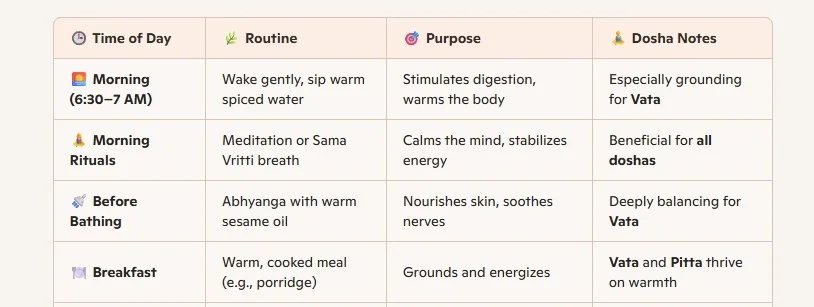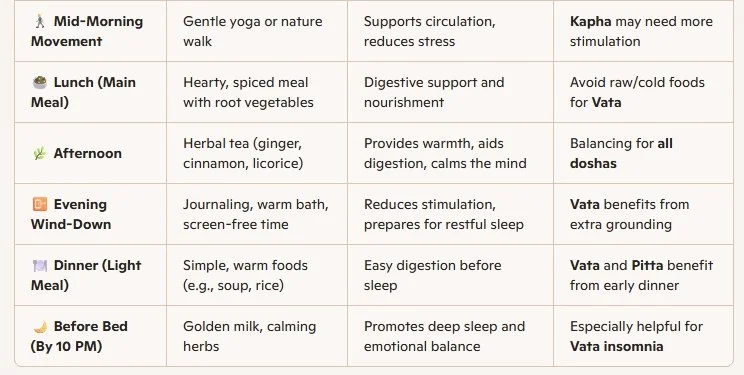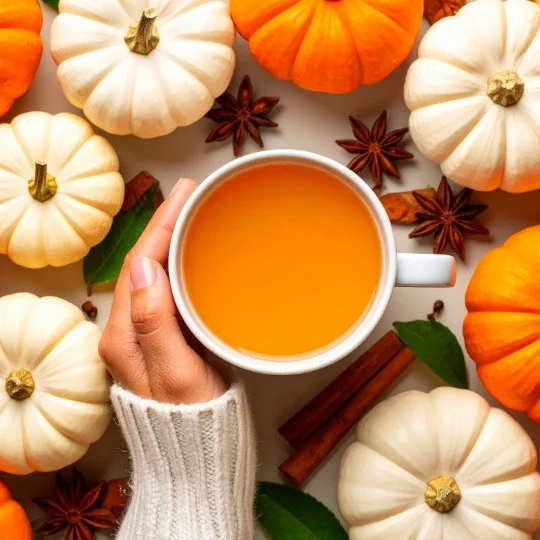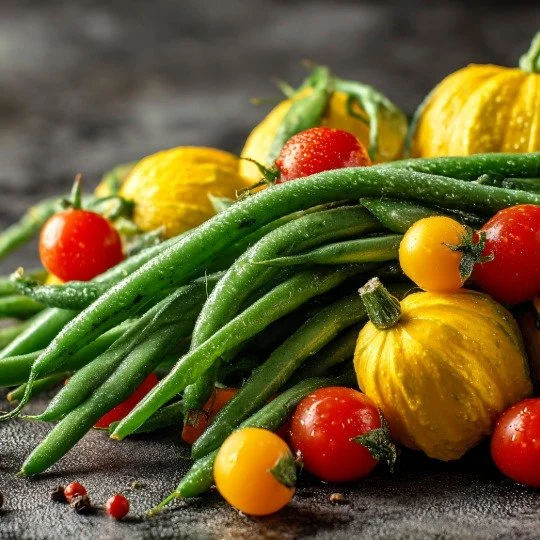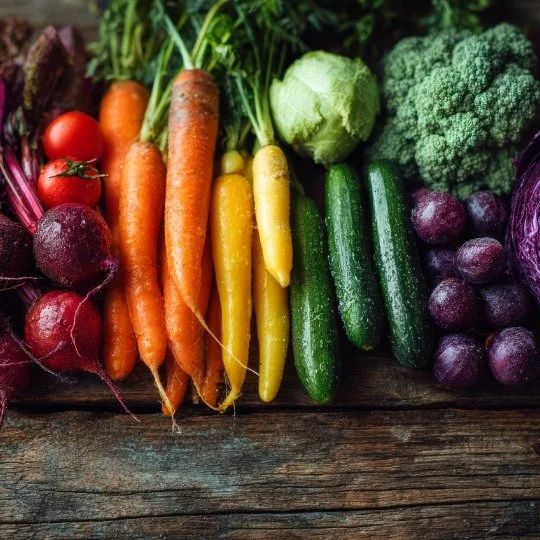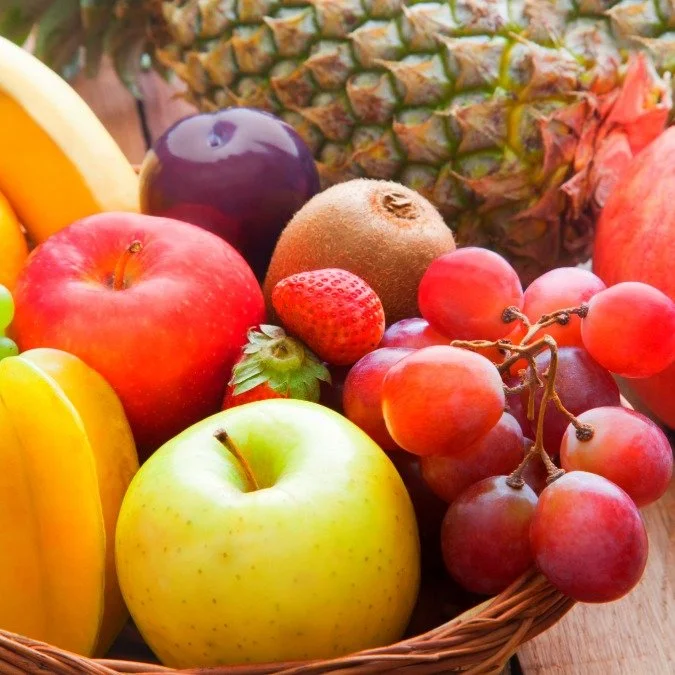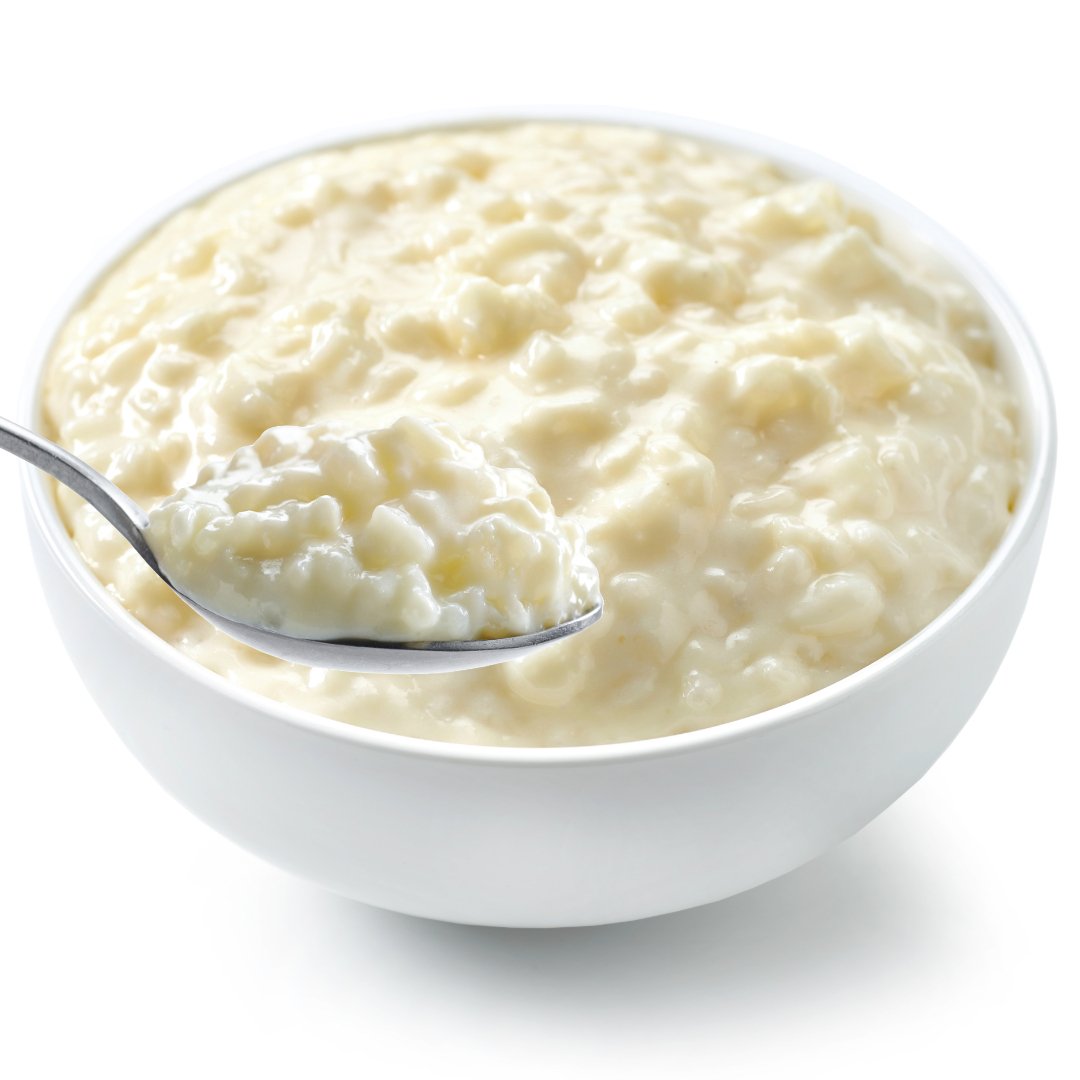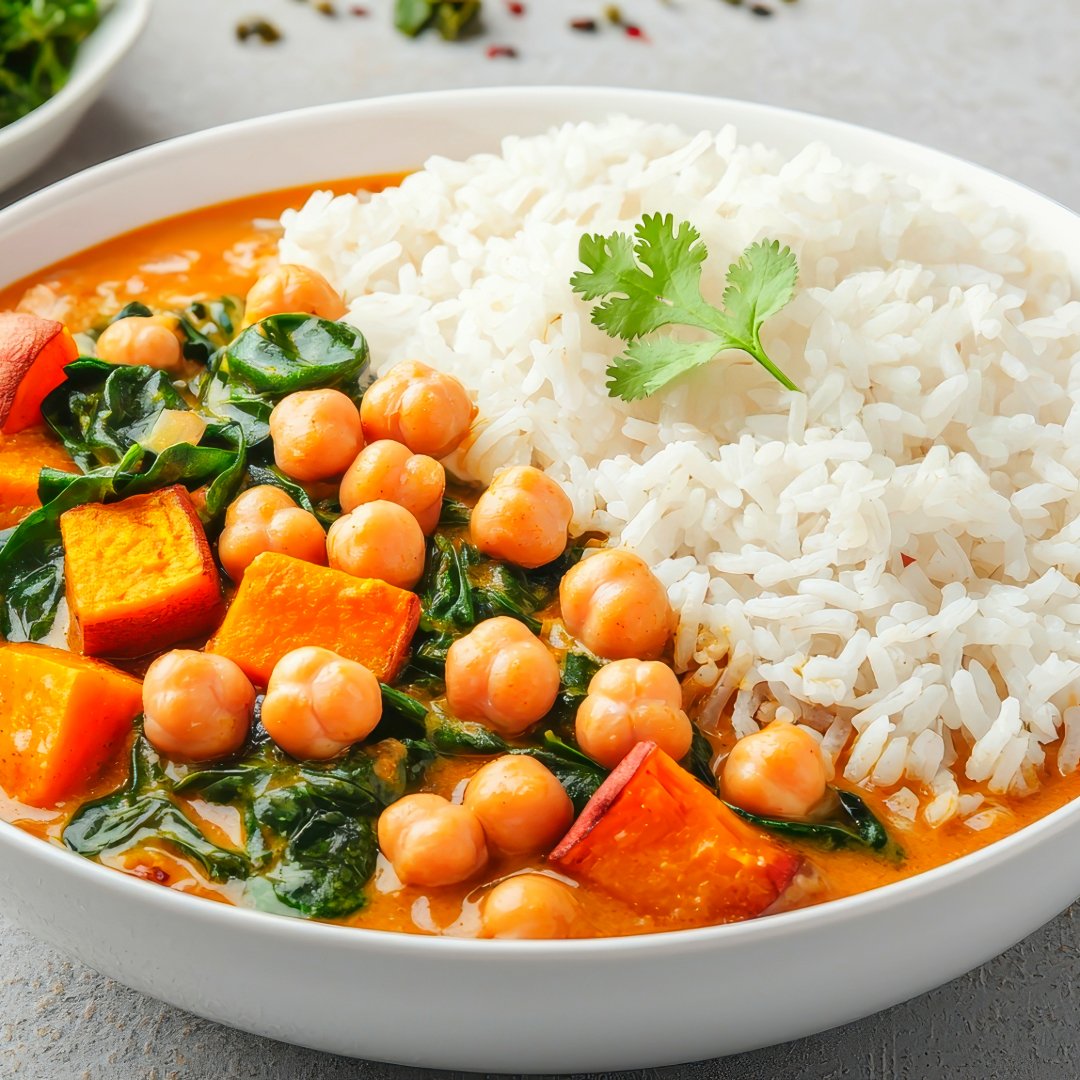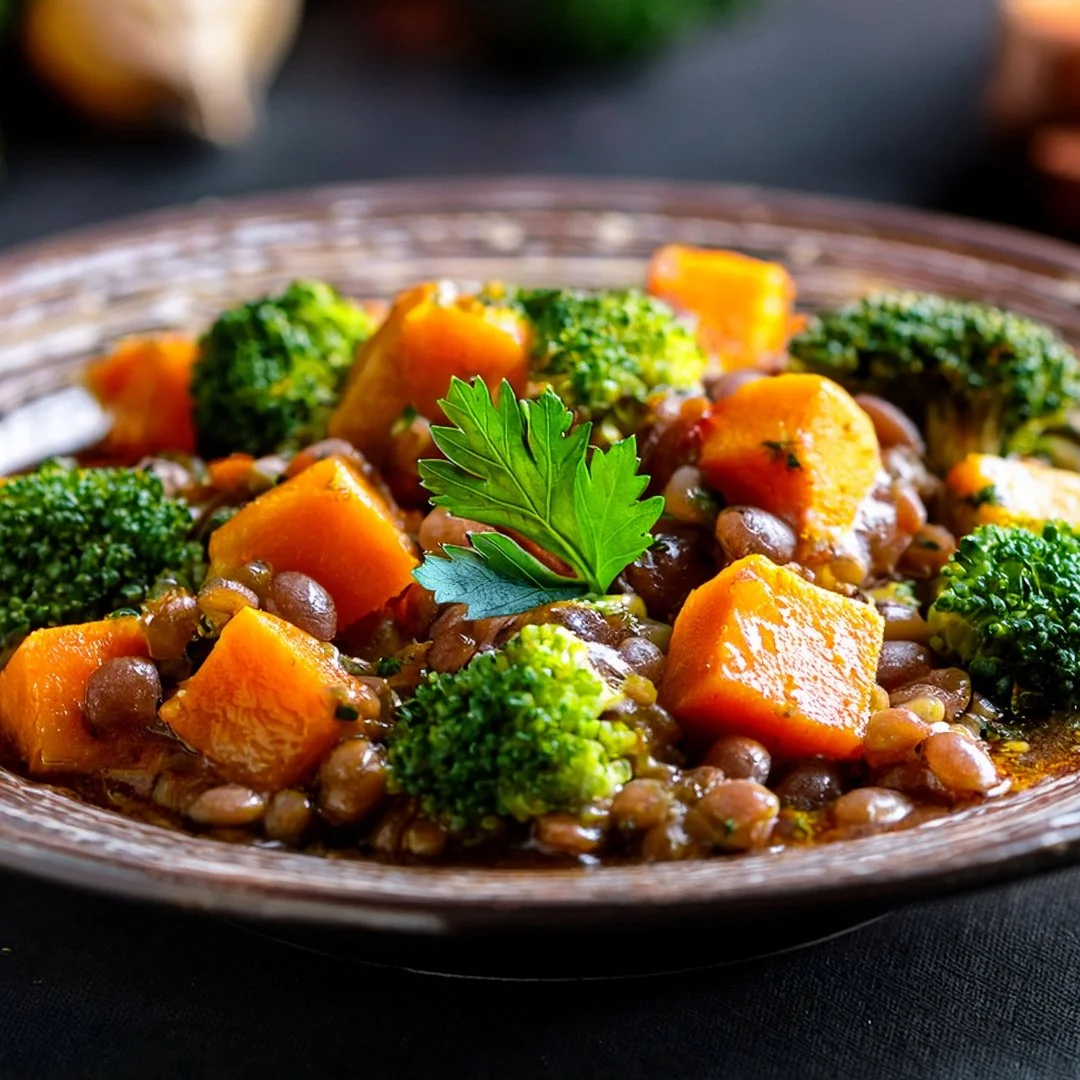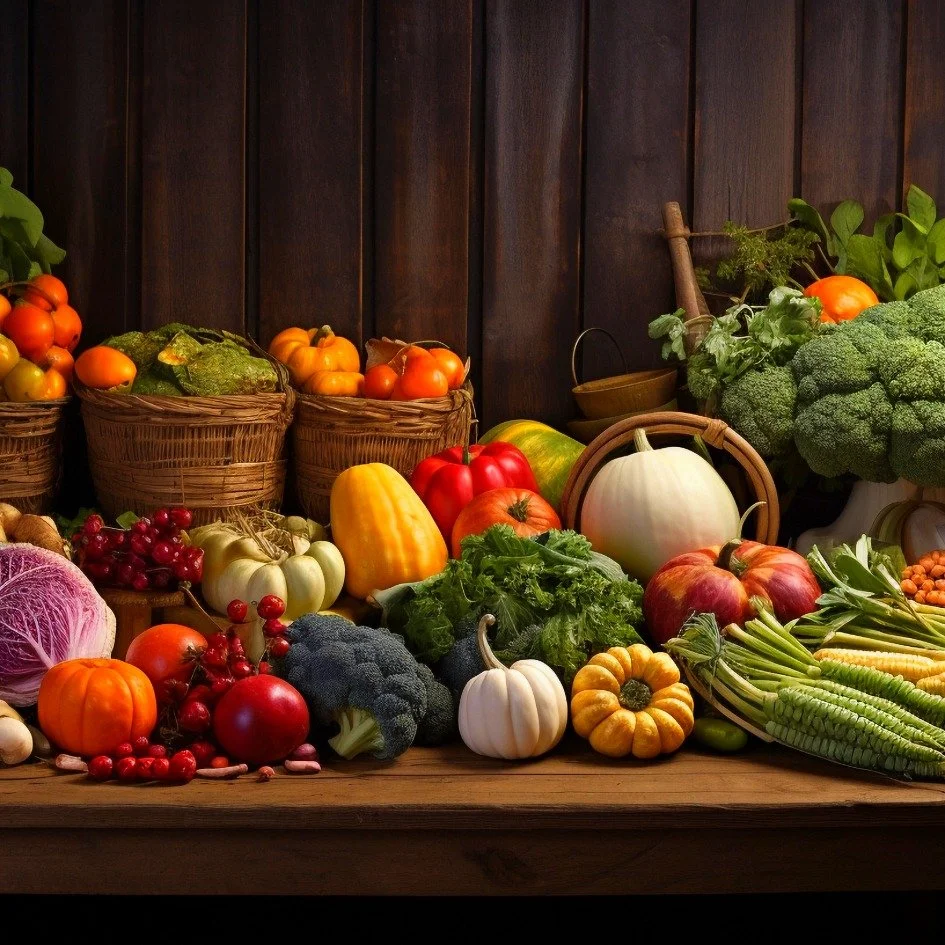
Fall Wellness
Ayurvedic Health Tips
Sacred Transition: Nourishing Vata and Letting Go with Grace
Fall, or Sharad in Ayurveda, is a season of transition, where the heat of summer gives way to cooler winds and shorter days. As nature begins to slow down, Ayurveda encourages us to ground, nourish, and protect ourselves from the rising Vata dosha. Here's your guide to Ayurvedic Fall Wellness, blending ancient insight with modern simplicity.
Why Fall Matters in Ayurveda
Fall is dominated by Vata, the dosha of air and space. Its qualities, dry, light, cool, and mobile, can lead to imbalances like anxiety, dryness, insomnia, and digestive issues. Ayurveda recommends warming, grounding, and stabilizing practices to counteract these effects and prepare the body for winter.
Ayurvedic Fall Wellness Tips
Begin with Warm Mornings: Start your day with warm water infused with cinnamon, ginger, or clove to stimulate digestion and warm the body.
Favor Hearty, Nourishing Foods: Think root vegetables, cooked grains (like rice and oats), ghee, and warming soups. Use spices like cinnamon, nutmeg, cardamom, and turmeric.
Practice Abhyanga (Oil Massage): Daily self-massage with warm sesame or almond oil helps combat dryness, calm the nervous system, and nourish the skin.
Slow, Grounded Movement: Gentle yoga, stretching, and slow walks in nature help stabilize Vata and soothe the mind.
Breathe & Reflect: Practice grounding breathwork like Sama Vritti (equal breathing) and journaling to center your thoughts.
Use Ayurvedic Herbal Support: Herbs like Ashwagandha (for stress), Shatavari (for nourishment), and Triphala (for digestion) are fall favorites. Always consult a practitioner before starting new herbs.
A Few More Lifestyle Touches
Layer Up: Keep warm with natural fabrics like wool, cotton, or silk.
Create Cozy Spaces: Use warm lighting, grounding scents (like vetiver or frankincense), and soft textures to soothe Vata.
Stick to Routine: Vata thrives on consistency, regular meals, sleep, and self-care rituals are key.
Ayurveda teaches us that fall is a time to slow down, turn inward, and build resilience. It’s the season to nourish body and soul.
Ayurvedic Fall Recipes to Try
Spiced Apple Porridge Cooked apples with oats, cinnamon, cardamom, and a touch of ghee. How it helps: Warm, grounding, and easy to digest.
Root Vegetable Stew Carrots, sweet potatoes, beets, and parsnips simmered with cumin, ginger, and turmeric. How it helps: Nourishes tissues, supports immunity, and balances Vata.
Golden Milk (Haldi Doodh) Warm milk with turmeric, cinnamon, and nutmeg. How it helps: Anti-inflammatory, calming, and sleep-supportive.
Ghee-Roasted Squash Butternut or acorn squash roasted with ghee, rosemary, and black pepper. How it helps: Builds strength, supports digestion, and warms the body.
Personalized Ayurvedic Fall Routine
Ayurveda is all about honoring your unique constitution. Here's how to tailor your fall wellness:
Wake Gently & Warm Up Rise around 6:30–7 AM, drink warm spiced water, and begin with breathwork or meditation.
Eat According to Your Dosha
Vata dominant: Focus on warm, moist, and grounding meals with healthy fats.
Pitta dominant: Continue cooling foods but add more warmth and sweetness.
Kapha dominant: Lighten meals slightly, but still favor cooked and spiced foods.
Move Mindfully: Choose slow, intentional movement, yin yoga, tai chi, or nature walks.
Sleep Early & Consistently: Aim for sleep by 10 PM. Create a calming bedtime ritual with warm drinks and screen-free time.
Why Detoxification Shifts in Fall
Fall isn’t the time for intense detox, it’s about gentle nourishment and preparation.
Because Vata Rises: The dry, cool qualities of fall can deplete tissues and disturb digestion.
Fall Supports Rebuilding: Warm, oily, and spiced foods help restore balance and prepare the body for winter’s demands.
A mindful fall helps build immunity, emotional steadiness, and deep inner strength.
The Simple Science Behind Ayurveda’s Fall Wisdom
Gut Health = Mental Calm: Warm, spiced meals support digestion and reduce anxiety by calming the gut-brain axis.
Healthy Fats = Hormonal Balance: Ghee and sesame oil nourish tissues and support hormone production.
Routine = Nervous System Support: Consistent habits help regulate cortisol and stabilize mood.
Warming Herbs = Immune Boost: Turmeric, ginger, and cinnamon have antimicrobial and anti-inflammatory properties.
Daily Ayurvedic Fall Routine Checklist
Start your day gently around 6:30 to 7 AM by waking slowly and sipping warm water infused with digestive spices like ginger or cinnamon. This helps stimulate your digestive fire and gently warms the body, especially grounding for Vata types.
Begin your morning rituals with meditation or Sama Vritti (equal breath) pranayama to calm the mind and stabilize your energy. All doshas benefit from this centering practice.
Before bathing, practice abhyanga, self-massage with warm sesame oil. This deeply nourishes the skin, soothes the nervous system, and is particularly beneficial for Vata imbalances.
For breakfast, enjoy a warm, cooked meal such as spiced porridge or stewed fruit. These grounding foods energize the body and support digestion, especially for Vata and Pitta constitutions.
Mid-morning is a great time for gentle movement. A nature walk or slow yoga session helps improve circulation and reduce stress. Kapha types may benefit from slightly more vigorous activity to stay energized.
Make lunch your main meal of the day. Choose hearty, spiced dishes featuring root vegetables like sweet potatoes, carrots, or squash. These foods nourish deeply and support digestion. Vata types should avoid raw or cold foods during this season.
In the afternoon, sip herbal teas made with warming spices such as ginger, cinnamon, or licorice. These teas aid digestion, provide warmth, and calm the mind—ideal for all doshas.
As evening approaches, begin winding down with calming rituals. Journaling, a warm bath, and screen-free time help reduce stimulation and prepare the body for restful sleep. Vata types especially benefit from extra grounding in the evening.
Dinner should be light and warm, think soups, rice dishes, or lightly spiced vegetables. Eating early and keeping meals simple supports easy digestion and restful sleep, particularly for Vata and Pitta types.
Before bed, ideally by 10 PM, enjoy a cup of golden milk or take calming herbs like Ashwagandha or nutmeg. These promote deep, restorative sleep and emotional balance, and are especially helpful for those prone to Vata-type insomnia.
Final Thoughts: Embrace Fall the Ayurvedic Way
Fall is a sacred pause, a time to reflect, restore, and root yourself in what truly nourishes. Ayurveda teaches us that wellness is seasonal, and fall invites us to slow down, warm up, and build inner resilience.
By embracing grounding foods, soothing rituals, and steady routines, you’re not just preparing for winter, you’re cultivating strength, clarity, and peace.
Let fall be your season of restoration and quiet power.
